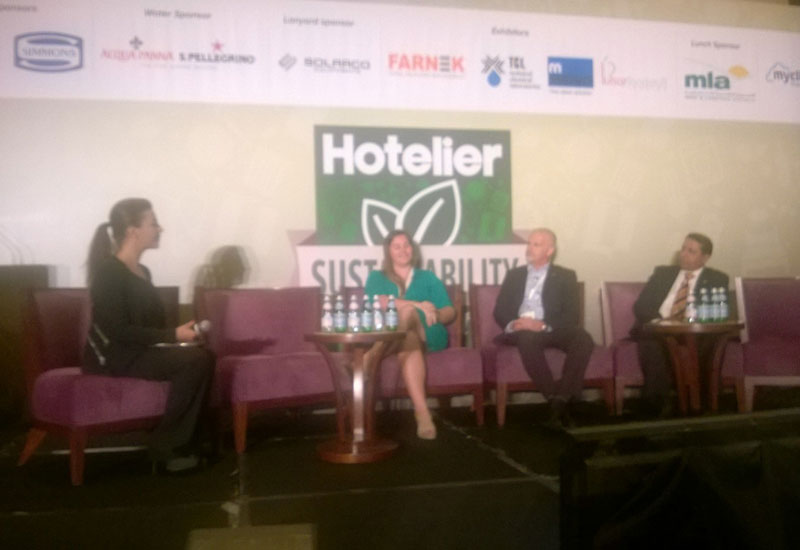At the Hotelier Middle East Sustainability Summit which took on May 20 at Ritz-Carlton JBR Dubai, delegates discussed how hotels in the Middle East can best drive sustainability initiatives despite the inherent challenges of the region such as the desert environment.
In a panel session moderated by Jennifer B. Houchaime, hospitality consultant, Ròya International, panellists stressed the importance of categorising priorities, coming up with a short term and long term plan and convincing guests that sustainability can be glamorous.
Jayakumar Pillai, director of technical services, Kempinksi Hotel Mall of the Emirates said that the hotel firstly has to implement the latest technologies to be a front-runner in sustainability trends, and secondly to implement staff training. He said the hotel had to "categorise different areas of sustainability, for example water saving, energy saving etc.” so that staff members across departments are involved in each one.
David Thomson, COO JA Resorts & Hotels, added that customer participation is crucial to a hotel’s success in implementing sustainable practices. He said: “We actually implement some things that the guest has to accept or can opt out of. For example, they can request we change the towels every day but when they walk into the room we have to have a note to say what we’ll do and what we won’t do so we make them aware.
Thomson said the hotel has to offset certain practices that are impossible to make sustainable – such as jetting customers to the island where the hotel is – with sustainable intiatives such as the hotel's work on building a coral reef. “There are luxuries that people want and it’s up to us to address that,” he commented.

| Advertisement |
For Arabella Willing, Marine Biologist, Park Hyatt Abu Dhabi Hotel & villas, sustainability can be luxurious. She said: “I think it’s important to find alternatives that are glamorous. I disagree that sustainable clashes with luxury”.
Willing added that hotels can easily substitute harmful chemicals with more natural products and added that guest awareness of what hotels are practising is crucial for gaining their support. She commented: “So much of it is about informing the guests about what you’re doing."
Pillai agreed that hotels can achieve luxury without compromising on quality and that cost-effective, simple measures can be taken in the short term to make a difference.
He said: “Rather than waiting for everything to happen we need to start doing what we can now. Maybe for operational costs you only do certain things – there should be a short term and long term plan. Even in the short term there are lots of things we can implement.”
The inaugural Sustainability Summit was attended by around 120 general managers, F&B directors, hotel engineers and housekeepers, who discussed the most important issues in running hotel sustainability programmes.
Sponsors of the Sustainability Summit included Intercoil, MLA, Solarco, Meiko, Pulsar Foodstuff, TCL, Acqua Panna, S. Pellegrino, and Farnek.









 Search our database of more than 2,700 industry companies
Search our database of more than 2,700 industry companies









